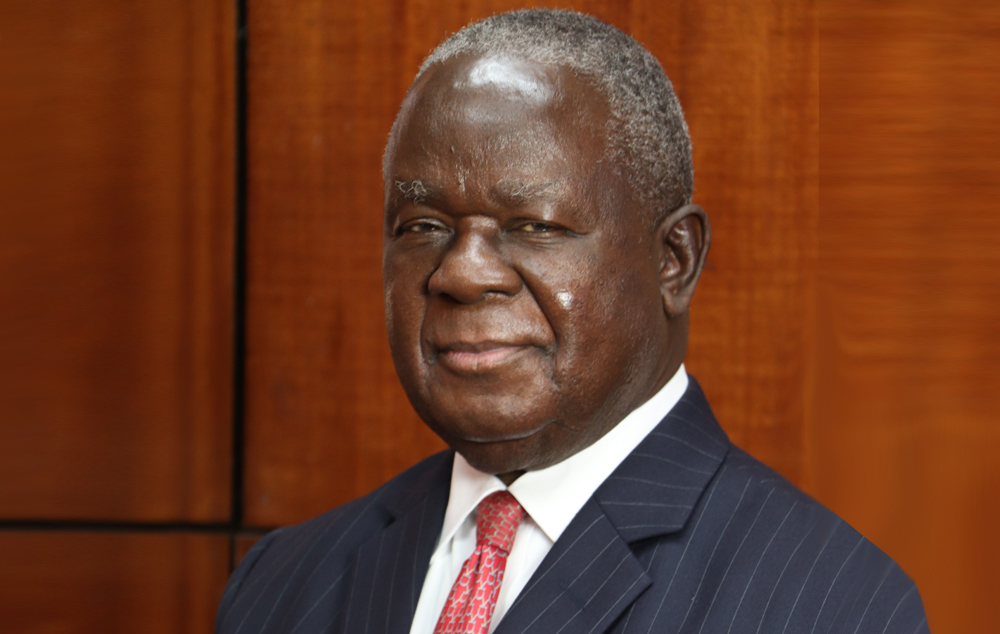
19 May Malawi: Preparing for growth
Felix Lafiel Mlusu, Minister of Finance, shares his optimism over Malawi’s medium-term economic prospects
Q: According to a report issued by the IMF in mid-April, the impact of Covid-19 was set to reduce GDP growth to 1 percent, down from a previous estimate of over 5 percent. A strong rebound is expected for 2021. All economies in the world have had to revise their forecasts and expectations due to the evolution of the pandemic. What is your opinion four months after this forecast was issued?
This forecast was made on the assumption that by August or September this year the pandemic would have tapered off. Unfortunately, this has not happened, and if it continues until December, GDP will go into negative growth. In other words, even the 1 percent that was forecast will not be achieved.
Q: Right after you took over as Minister of Finance, you presented a Provisional Budget Statement for the Financial Year 2020 – 2021 in Parliament. What are the main priorities in this provisional budget?
The provisional budget was intended to gain parliamentary approval for the government to run its affairs while we were working on a full-year budget. The main priorities in the provisional budget were the introduction of an affordable inputs program for our smallholder farmers, the introduction of an economic empowerment program for women and young people, and some tax changes on personal incomes.
Q: A stable and solid macroeconomic framework is key for any country seeking to generate trade and investment flows. What policies do you plan to put in place to address economic imbalances in the short and medium-term?
We will be embarking on sound and aggressive structural and policy reforms, and achieving resilient, sustainable and inclusive economic growth. We aim to achieve macroeconomic stability and sound financial management. Our policy formulation will focus on these three pillars. This will be done in a transparent and accountable manner, following the rule of law.
Q: As the President told us in a recent interview, Malawi is a country with huge, untapped potential in several sectors of the economy, such as agribusiness, energy, mining and tourism. What policies do you plan to implement to attract foreign direct investment (FDI) in these economic activities, and what would Malawi’s comparative advantages be in an African context?
Infrastructure development is one key area to which we will pay special attention in terms of policy formulation, not just to attract FDI but also local investment. We will formulate specific policies to support private sector investment in these sectors. The competitive advantages that Malawi has in an African context is that it is a peaceful and very democratic country; we are a friendly, hard-working and proud people; and we have versatile arable land and untapped reserves of resources.
Q: Some countries have followed the Public-Private Partnership (PPP) model to develop projects in infrastructure and energy. Is Malawi going to go along this path?
Malawi has been following this model for some time now. Our PPP Commission, which is the board that handles this particular activity, has been actively and aggressively engaging potential partners in various infrastructure projects, with positive results.
Q: You have had a long and successful career in the corporate world, having led NICO to become a multinational. What experiences do you draw from your years at the helm of NICO in your tenure as Minister of Finances?
Of the experiences that I bring to my new responsibility, the main ones are to be a member of the team, while providing leadership and motivation in a disciplined manner, with a clear focus on producing results.
Q: The empowerment of the private sector is essential for the country’s mid- to long term growth. What resources do you plan to allocate from the Ministry to sustain this empowerment?
We will allocate resources to support various infrastructure projects that will create an enabling environment for the private sector and other specific sectors to do good business and flourish in the country. These projects will make the environment conducive for the private sector to function properly, effectively and efficiently.
Q_ Covid-19 will pass, and countries will adapt to the consequences of it. What are your expectations for the economy of Malawi in the long run?
My expectations for the economy are great. Malawi is the fourth-poorest country in the world: this pandemic gives us the opportunity to look at our economic and social policies with fresh eyes. Our policies will focus on laying foundations to graduate Malawi into a middle-income country over the next 10 years.
Q: Do you have a final message for the readers of Newsweek?
Malawi is a good destination for investment in various sectors of the economy. It provides a lot of investment opportunities and there is potential for businesses to invest in those areas with support from the government. It is a very attractive destination because of the resources that it offers, its people, the land, the lake, the hard-working spirit, the democratic processes and all the benefits that an investor can see in terms of taxes. Malawi is ready as a destination for investment.

Sorry, the comment form is closed at this time.